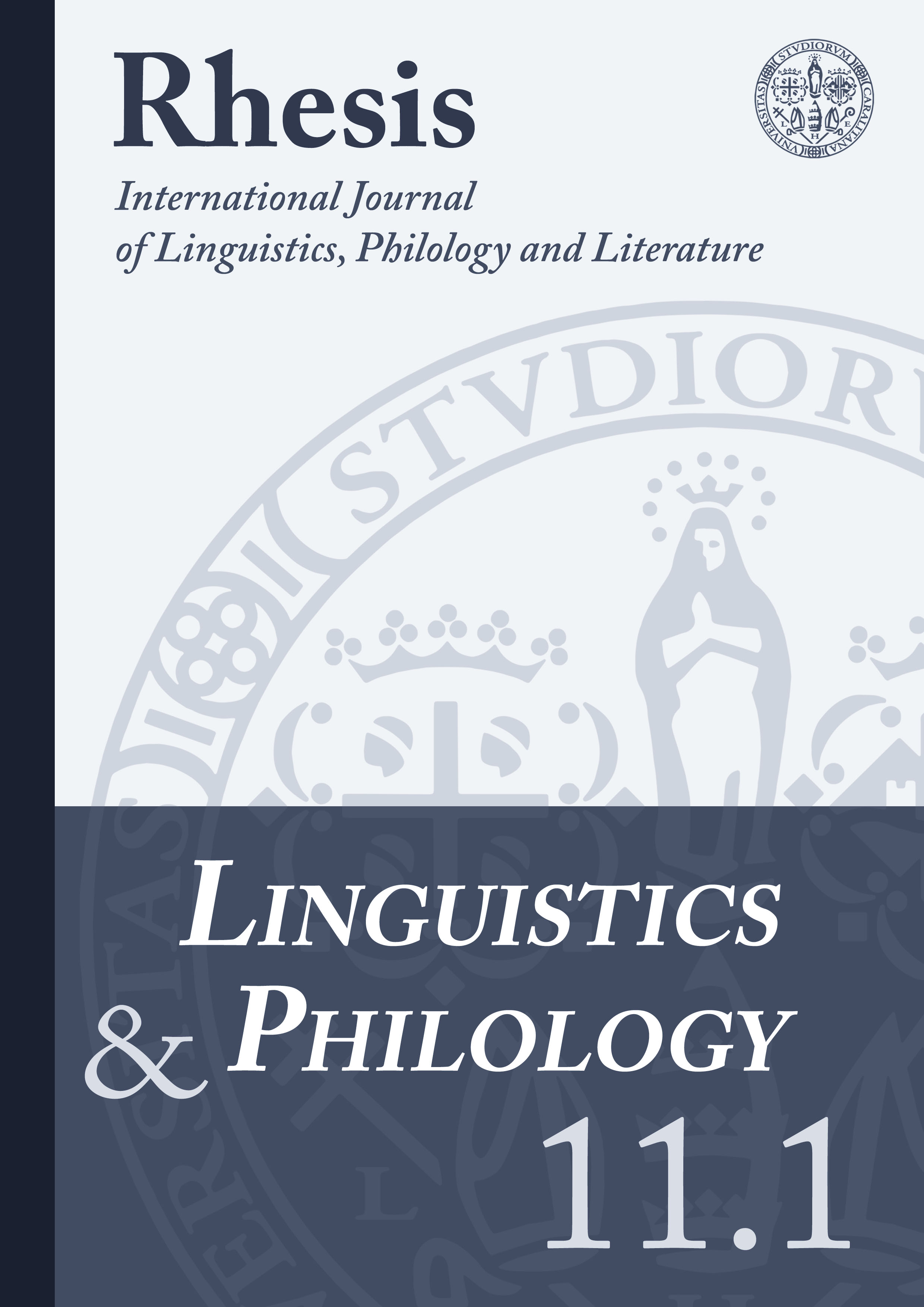Manipolare il passato, prefigurare il futuro: esempi storici, emozioni e deliberazione nell’oratoria attica
Abstract
This article investigates the relationship between paradeigmata, persuasion, and emotions in fourth-century deliberative oratory. It argues that symbouleutic speakers seek to counteract or accentuate their audiences’ fears for the future by strategically manipulating past events. Contemporary research on the operation of historical analogies has argued that the recollection of collective memories helps to imagine future scenarios. In a debate about a potential war or a discussion about the most effective strategies for facing a new enemy, arguments from historical examples can encourage the imagination or anticipation of positive or negative outcomes. By evoking past memories, speakers thus seek to generate fear or hope in their audiences and therefore persuade them to accept specific political proposals.
Downloads
References
Bassi, Karen (2016), ‘Fading into the Future: Visibility and Legibility in Thucydides’ History’, in Lianeri, Alexandra (ed.), Knowing Future Time in and through Greek Historiography, BerlinNew York, de Gruyter, 215-242.
Bearzot, Cinzia S. (1985), ‘Da Andocide a Eschine: motivi ed ambiguità del pacifismo ateniese nel IV secolo a.C.’, in Sordi, Marta (ed.), La pace nel mondo antico, Milano, Vita e pensiero, 86-107.
Brillante, Sergio (2017), ‘Il monito di Melesippo. Tucidide II, 12’, Futuro Classico 3, 168-196.
Canfora, Luciano (1974), Discorsi e Lettere di Demostene. Volume primo, Discorsi all’Assemblea, Torino, UTET.
Carlier, Pierre; Sarini, Ilaria (1992), Demostene. Orazioni, Milano, Rizzoli.
Edwards, Michael (1995), Greek Orators IV. Andocides, Warminster, Aris & Phillips.
Grethlein, Jonas (2010), The Greeks and Their Past. Poetry, Oratory and History in the Fifth Century BCE, Cambridge, Cambridge University Press.
Gurisatti, Giovanni (2017), Martin Heidegger. Concetti fondamentali della filosofia aristotelica, Milano, Adelphi.
Jost, Karl (1936), Das Beispiel und Vorbild der Vorfahren bei den attischen Rednern und Geschichtsschreibern bis Demosthenes, Paderborn, Ferdinand Schöningh.
Kazantzidis, George; Spatharas, Dimos (eds.) (2018), Hope in Ancient Literature, History, and Art. Ancient Emotions I, Berlin-New York, de Gruyter.
Konstan, David (2006), The Emotions of the Ancient Greeks: Studies in Aristotle and Classical Literature, Toronto-Buffalo-London, University of Toronto Press.
Magnoli Bocchi, Giovanni Battista (2019), Politica e storia nella Retorica di Aristotele, Roma, Carocci.
Maltagliati, Giulia (2020), ‘Persuasion through Proximity (and Distance) in the Attic Orators’ Historical Examples’, Greek, Roman and Byzantine Studies 60 (1), 68-97.
Moss, Jessica (2012), Aristotle on the Apparent Good: Perception, Phantasia, Thought, and Desire, Oxford, Oxford University Press.
Natali, Carlo (1989), ‘Paradeigma: The Problems of Human Acting and the Use of Examples in Some Greek Authors of the 4th Century B.C.’, Rhetoric Society Quarterly 19 (2), 141-152.
Nouhaud, Michel (1982), L’utilisation de l’histoire par les orateurs attiques, Paris, Les Belles Lettres.
Palumbo, Lidia (2014), ‘To Mellon Aphanes. Appunti sulla nozione antica di futuro’, in Viti Cavaliere, Renata; Peluso, Rosalia (eds.), La coscienza del futuro, Napoli, La scuola di Pitagora, 169-186.
Piazza, Francesca (2008), La Retorica di Aristotele. Introduzione alla lettura, Roma, Carrocci.
Poddighe, Elisabetta (2017) ‘La funzione della conoscenza storica nella teoria politica e nella precettistica retorica secondo Aristotele: l’importanza della visione globale’, Nova tellus 35 (2), 61-81.
Price, Bennett J. (1975), Paradeigma and Exemplum in Ancient Rhetorical Theory, Berkeley, University of California dissertation.
Saint Laurent, Constance de (2017), ‘Thinking through Time: From Collective Memories to Collective Futures’, in Saint-Laurent, Constance de; Obradović, Sandra; Carriere, Kevin R. (eds.), Imagining Collective Futures. Perspectives from Social, Cultural and Political Psychology, Cham, Palgrave Macmillan, 1-16.
Sanders, Ed (2016), ‘Persuasion through Emotions in Athenian Deliberative Oratory’, in Sanders Ed; Johncock, Matthew (eds.), Emotion and Persuasion in Classical Antiquity, Stuttgart, Franz Steiner Verlag, 57-72.
Schittko, Martin P. (2003), Analogien als Argumentationstyp. Vom Paradeigma zur Similitudo, Göttingen, Vandenhoeck & Ruprecht.
Spatharas, Dimos (2019), Emotions, Persuasion, and Public Discourse in Classical Athens, BerlinNew York, de Gruyter.
Usher, Stephen (1999), Greek Oratory. Tradition and Originality, Oxford, Oxford University Press.
Wooten, Cecil (2008), A Commentary on Demosthenes’ Philippic I, with Rhetorical Analyses of Philippics II and III, Oxford, Oxford University Press.



